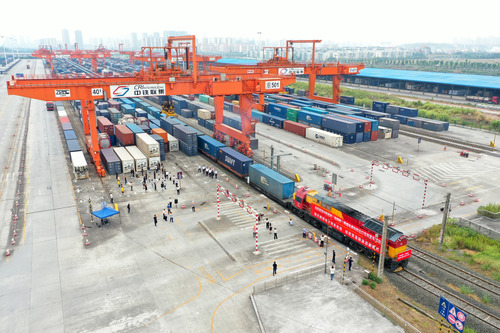
By Zhang Li, director and research fellow of E-Commerce Research Institute of Chinese Academy of International Trade and Economic Cooperation
In 2019, China's economy gave the top priority to "stability", and the goal set by the central government, which aims to keep employment, financial sector, foreign trade, foreign and domestic investments, and expectations stable, will be the general principle, so as to promote stable, sound and sustained development of the overall economy. Stability means no impatience or rashness, and no immoderate pursuit for quantitative development or leapfrog development, but steady, moderate and high-quality development.
Stable development is not about stabilizing the traditional development model, instead, it is about driving development with innovation, and facilitating existing financial resources by using additional financial resources, so as to achieve high-quality development through keeping performance stable. Therefore, new business models still need to be encouraged, especially industries with new technologies, new forms of business and new models, which will be the general trend of future economic development as well as superiorities in future international competition. China needs to accelerate fostering new advantages in international competition while keeping the performance stable. Among the new advantages, cross-border e-commerce is one of the best means to stabilize foreign trade and employment. In recent years, China's cross-border e-commerce has been booming, and the average annual growth rate of China's cross-border e-commerce import and export volume has been over 50%. But challenges loom large in the development of cross-border e-commerce, for example, large exchange rate fluctuations of RMB, incomplete infrastructure, tough brand cultivation and protection, high cost in safeguarding after-sales rights, rapid change of tax system, etc.
In conclusion, in 2019, huge efforts should be made to promote the development of cross-border e-commerce, address deep-seated problems impeding the development of cross-border e-commerce, stabilize foreign trade and employment through developing cross-border e-commerce, so as to foster new advantages in international competition. The rapid development of China's cross-border e-commerce has led to deeper division of labor in the industry, which will bring increasingly specialized support services. For example, a group of cross-border e-commerce service providers will emerge, providing SMEs with services including website operation, financial payment, customs clearance, trade financing, credit guaranty, logistics & warehousing, digital marketing, exchange and tax refund, e-commerce talent training, etc. With a solid foundation laid and the all-out opening-up formed, China's cross-border e-commerce will gain a wider space for development.




 A single purchase
A single purchase









